No win, no Phi
Phi is but a “pawn of policy”, heard Supreme Court judges, while Captain Guy Booth discusses the next steps for the stranded superyacht…
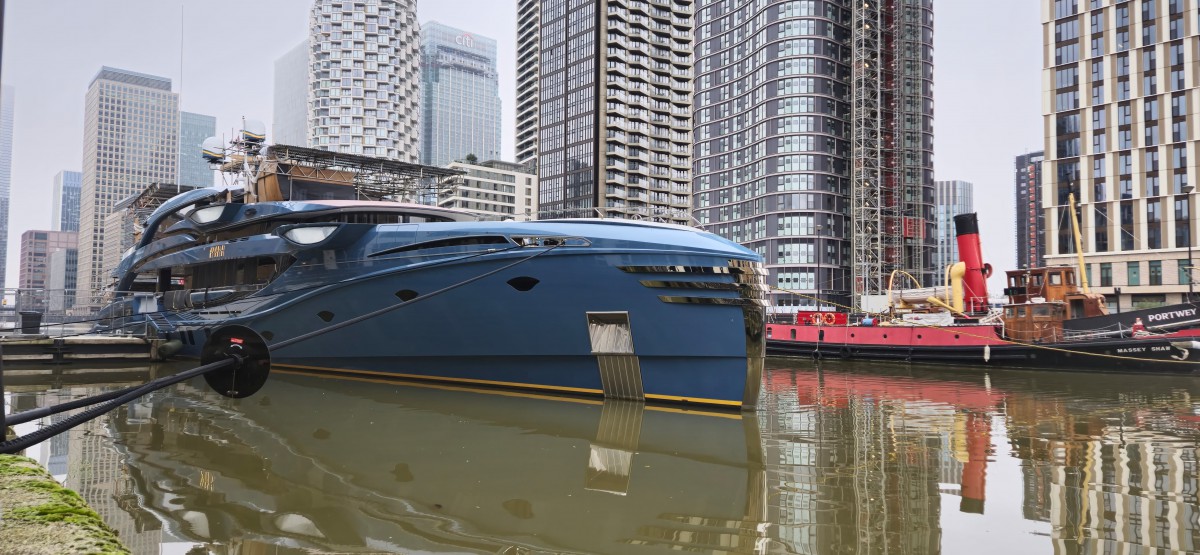 Image credit: Conor Feasey
Image credit: Conor Feasey
Phi has evolved into a symbol of Greek tragedy in modernity, far removed from what its classical namesake originally intended. Once Royal Huisman’s celebrated flagship, adorned with fitting accolades and deserving of a title that reflects the perfect ratio, the 59-metre vessel now resembles a tattered ruin, precariously close to sinking into a murky abyss in a London lock. Hope for the stranded Andonis still lingers, but its fate hangs in the balance of the UK’s highest judicial authority.
Yesterday (16 January) at the Supreme Court, the hearing that will determine Phi’s future concluded and is now awaiting judgement, which is expected to be delivered in four to six weeks. Speaking with SuperyachtNews live from Westminster, Captain Guy Booth remains resolute in the appellant’s plight for freedom from its government-imposed detention. Still, he is equally under no illusion that time is a luxury they simply cannot afford.
“It’s difficult to make a judgement on what will happen now. But we remain ever hopeful. We will not stop because the country, the court, the intelligence services and the government know exactly who [our client] is and who he is not,” Booth explains. “The decision to maintain [Phi’s] detention was based on the government recommendation to seek further evidence. They’ve had three years to gather that evidence and they have nothing.”
The story so far
Behind Dalston Projects, Phi’s legal owner, lies the vessel’s ultimate beneficial owner (UBO), Russian national Sergei Georgievich Naumenko, a multi-millionaire businessman. Having recently been delivered to its new owner from the Dutch shipyard, the brand-new vessel moored at South Dock in London in December 2021 on its maiden voyage.
Despite not being personally sanctioned by any government, Phi was detained in London on 28 March 2022, minutes before it was due to leave, under the authority of Grant Shapps, the then Secretary of State for Transport (SST). Shapps cited powers granted under the Russia (Sanctions) (EU Exit) Regulations 2019, which allow the detention of assets deemed by the British government to be “connected with Russia”.
Shortly after issuing the detention, Shapps commented in a TikTok video that Phi “belongs to a Russian oligarch”.
@grantshapps Super yacht detained in London #yacht #Ukraine ♬ Sunrise - BCD Studio
“Our client has a Russian passport, is ordinarily a resident in Russia, and is therefore deemed ‘connected to Russia’. And on that basis, they seized the boat. It’s worth noting that this is the only asset seized from a non-sanctioned person,” says Booth. The captain adds that the FCA (Financial Conduct Authority) has been asked numerous times to sanction Naumenko, a request it has repeatedly declined, citing no legal grounds to do so.
“Our client retired in 2011 and is now terminally ill. All his business dealings and wealth were accrued before the invasion. He’s not an oligarch, he’s not a billionaire. He’s a mid-level construction and greengrocer businessman with enough to own a medium-sized boat. It’s just a sub-500-ton motoryacht, not a 4,000-ton, 120-metre superyacht.”
Following the detention, Naumenko initiated legal proceedings to challenge the UK’s decision. The High Court heard the case on 27 March 2023. The appellants argued that the detention violated Naumenko’s property rights and failed public law rationality tests. However, the High Court dismissed these claims, ruling that the government acted within its legal powers, even without direct evidence of wrongdoing by the owner.
Dissatisfied with this ruling, Naumenko filed a case with the Court of Appeal, which heard it in January last year. The appellate court dismissed the appeal on all grounds, maintaining the government’s authority to detain Phi once again.
“Even at the Court of Appeal, however, they were, dare I say it, almost apologetic in their ruling. They found, and I quote, that the regulation was “embarrassingly loosely drafted from a legal perspective”, says Booth. “Nonetheless, the regulation that Grant Shapps arbitrarily wrote the night before it was delivered to us was not discussed in Parliament and did not go through due process.”
Booth adds that he fears the Supreme Court might similarly find, as the Court of Appeal did, that the SST does indeed have the right, under special circumstances, to draft new regulations in “emergency situations”. This would thereby condemn the appellants to seek further action, which presents the acute possibility of being incredibly costly to the British public purse.
For now, the yacht remains at South Dock, awaiting the Supreme Court’s final decision.
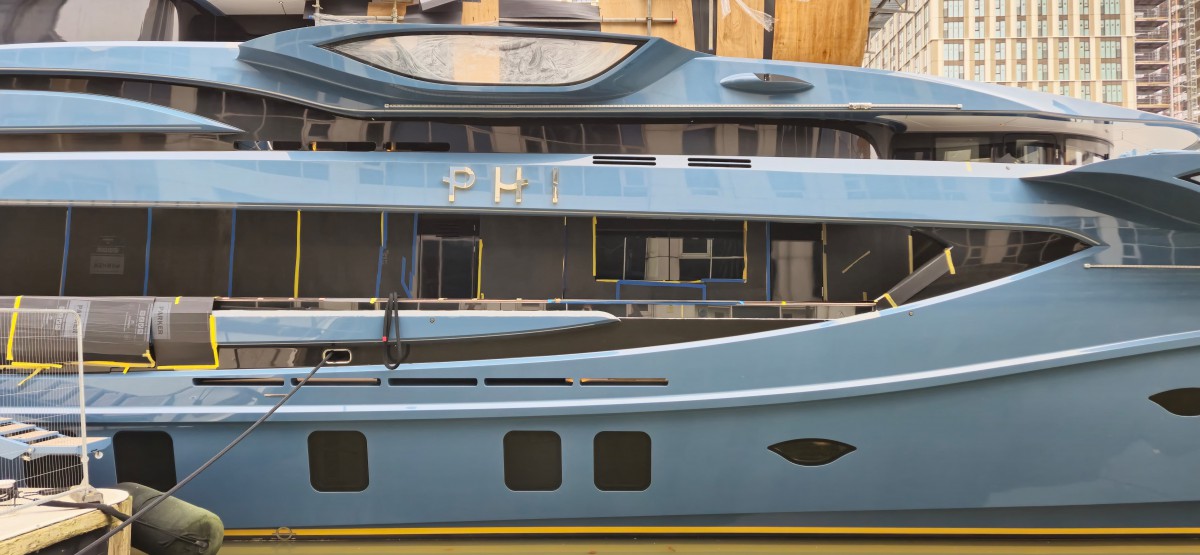 Image credit: Conor Feasey
Image credit: Conor Feasey
The Supreme Court
Judges Lady Rose, Lord Sales, Lord Reed, Lord Leggatt, and Lord Richards presided over the hearing. The appellants, representing Phi, presented their case first, followed by the government’s representatives (the respondents), who made their argument after midday.
The appellants, represented by Dr Philip Goeth of international law firm LGP and Ali Al-Karim of Brick Court Chambers, argued that the then-SST had used Phi as “a pawn of policy”. They contended that the fundamental purpose of sanctions, and by extension, the seizure of assets, is to impose effective (albeit temporary) restrictions on a regime and its supporters to bring about meaningful change. However, they claimed that in this instance, the government’s actions were “unreasonable”.
As in previous hearings, the appeal focused on whether the detention order was valid and based on concrete evidence. Goeth argued that Naumenko had not been proven to have engaged in any activity warranting such a severe action by the UK government. He dismissed the idea that Naumenko’s failure to publicly denounce the regime made him a complicit supporter. On the contrary, Goeth asserted that speaking out against the Russian government could result in a lengthy prison sentence, rendering the desired outcome to convince President Putin to end the war in Ukraine utterly unrealistic.
The respondents, led by Sir James Eadie KC and Jason Pobjoy of Blackstone Chambers, heavily relied on the concept of “patronage”. This is the notion that to have become wealthy in Russia, one must have been tolerated by the regime. “By this logic, if the regime has tolerated an individual and not seized or reabsorbed their assets into the state, they must be complicit with the regime. This is an assumption, but it’s a wild assumption,” counters Captain Guy Booth.
Discussions repeatedly returned to the origin of Naumenko’s wealth. The appellants argued that, in the grand scheme of things, Naumenko was a minor player compared to the wealthiest individuals in Russia, citing his absence from Forbes’ Russia 200 list as evidence. However, the judges dismissed this argument, noting that such a source is not a reliable measure of an individual’s wealth and irrelevant to the present legal matter.
Sir James Eadie also challenged the appellants’ claims that Naumenko had amassed his wealth completely honestly, pointing out that he had refused to provide the court with detailed information about the source of his funds, a claim the appellants strongly denied. Eadie further argued that to accrue such wealth, Naumenko must have engaged with other Ultra-High-Net-Worth (UHNW) individuals in Russia, some of whom likely derived their fortunes from dubious or illicit means.
The appellants maintained that the government’s reliance on speculative assumptions about Naumenko’s wealth and connections was insufficient to justify Phi’s detention. They argued that these assumptions violated Naumenko’s property rights under human rights law and lacked substantive evidence to support the claim that his detention served the intended purpose of sanctions.
The alleged encroachment on Naumenko’s property rights was another key conversation. The judges heavily assessed this in the second half of the hearing when discussing the previous court’s decisions. According to the regulations, the government doesn’t have to provide a reason to detain or seize an asset but simply detail the grounds on which it is seized.
Moreover, the regulation still permitted Naumenko to remain the rightful owner of the frozen asset, arguably making it more of an arrested asset than a seized one. So, while it was noted that the government had interfered with his human right to own property, the government was still operating within its legislative bounds.
In closing, the appellants made it clear that whilst the government’s intentions of the seizure aligned with its broader sanction motives to assert pressure on the Russian regime and end the war, they have proven to be completely ineffective in achieving results.
In the grand scheme of things, the necessary maintenance of the vessel and potential ecological hazards pose a larger issue for the British taxpayer, again diluting the intended effects of the move. And in an even broader sense, the application of the detention of such a high-value asset based on presumptions and without solid evidence of any wrongdoing sets a worrying precedent for governmental powers.
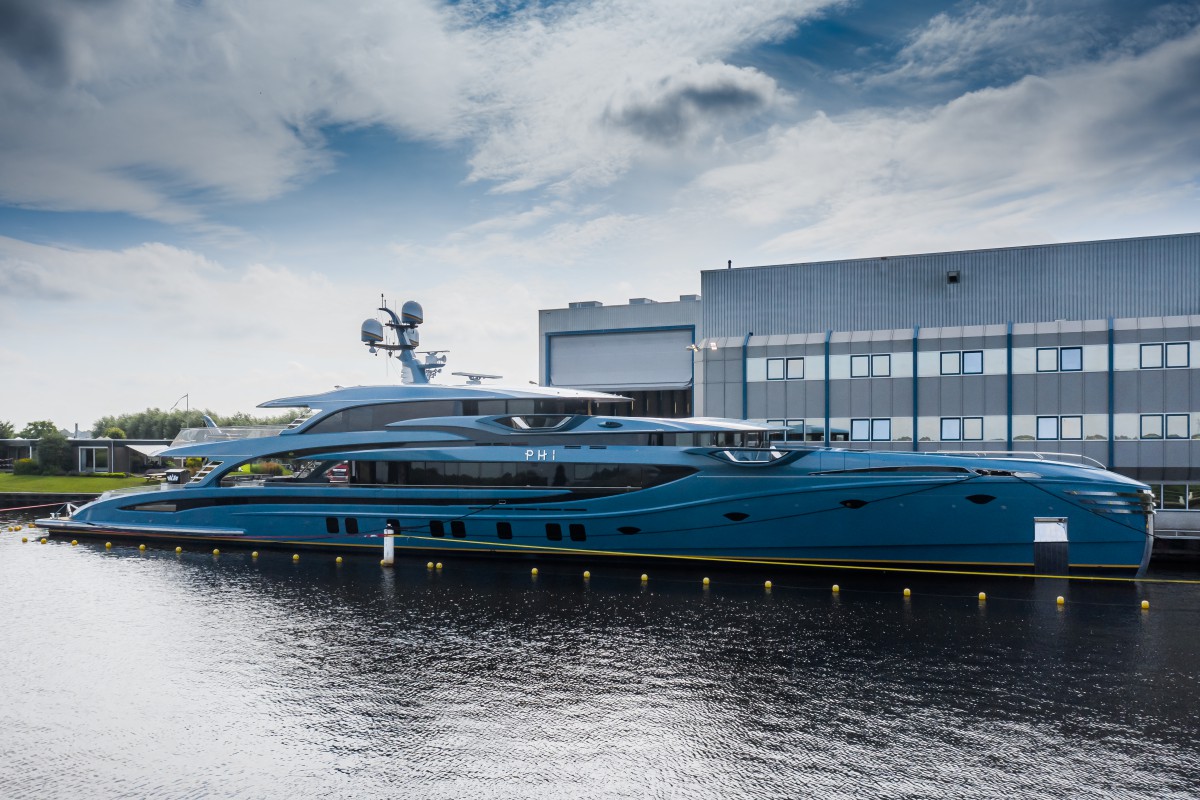 Image Credit: Tom van Oossanen
Image Credit: Tom van Oossanen
Left in limbo
“If we lose this case, then we’re already preparing all our options, including taking it to the European Court of Human Rights (ECHR),” Booth remarks. “What’s saddest is the legal obligation of the government to provide a fit and proper place of detention for the seized asset. They’ve failed to do that. The material degradation of this asset is astronomical. The yacht is on life support, has never been used and isn’t even finished.”
In its current state, Phi has fallen far from grace. It is not seaworthy, is out of class and uninsured. Booth explains that this isn’t due to a lack of appetite for insuring Russian vessels; there is. “We deal with global insurers in the Lloyd’s and international markets. They insure other Russian clients. The process is simple as long as you’re not sanctioned. But because it’s Phi, we are denied,” he says.
There is an argument that this could have been entirely avoidable. Two years ago, efforts began to relocate the Royal Huisman yacht to Ocean Village Marina in Southampton, a well-equipped site for such a vessel. While normal wear from salt and rain is expected, Phi’s current location at South Dock in London has exposed it to building rubble and aviation fuel, pushing the vessel to the brink of total ruin.
A passage plan to move Phi was submitted, but delays caused by constant personnel changes at the Department for Transport meant restarting the process every few months. The relocation needed to be completed by 4 December 2024 to avoid the yacht losing its classification. Without Class, the vessel cannot go to sea, is uninsurable and would no longer be permitted to berth at Ocean Village Marina.
While work on board is technically permitted, nightmarish logistical challenges make repairs verge on the impossible. Booth and his crew have no access to waste disposal, forklifts or cranes, and there are no shoreside facilities, workshops or even shore power. Even emergency vehicles cannot reach the vessel.
“Now we pose a massive risk,” Booth stresses. “Here’s the thing: the ship has faulty electrical systems. We’ve had half a dozen near-fires in electrical cabinets. There are 60,000 litres of diesel fuel on board. The fire doors, which are supposed to unlock and open, are instead closing and locking because they’ve been programmed incorrectly. And we can’t get the support we need to fix any of this.”
Phi is situated a mere 14 metres from a residential building. And since you can’t get a fire engine anywhere near the site, Booth has served the government a grave warning that there’s an ecological disaster looming if action is not taken soon. The yacht also lacks protection and indemnity (P&I) insurance, so clean-up costs would be in the tens of millions, paid for with the public purse.
“If and when we do get out of there, it will be by tug, and then it’s straight back to the shipyard. They’ll be waiting for us with open arms, like a father to a prodigal son. And we will never return to the UK. In fact, I’m sure hundreds of yachts will steer clear of the UK for some time,” adds Booth.
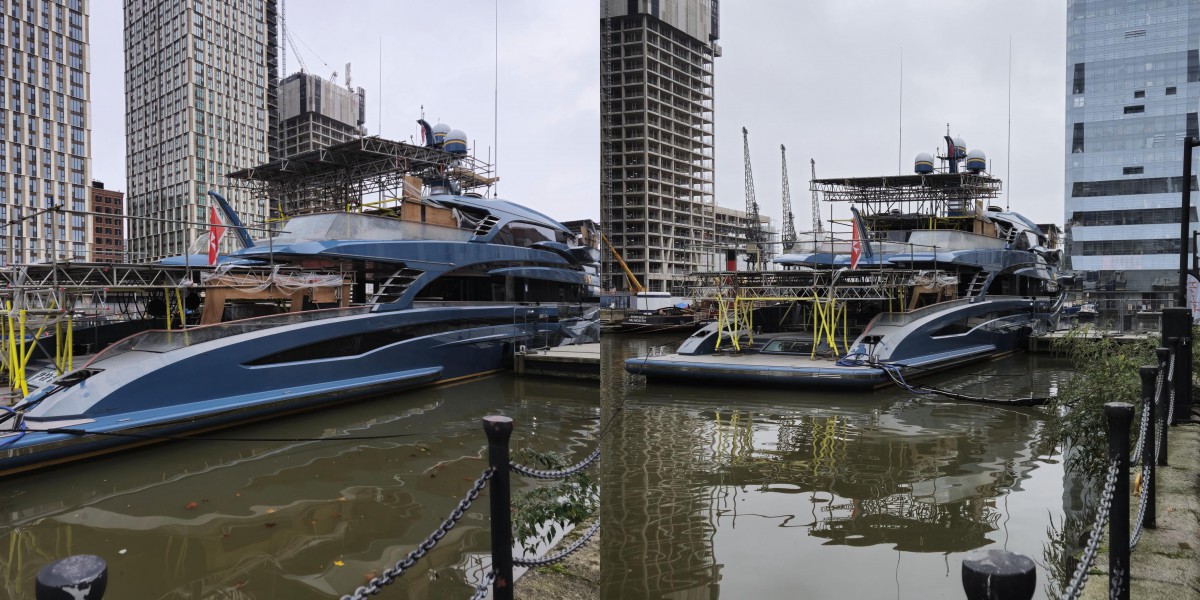 Image credit: Conor Feasey
Image credit: Conor Feasey
What now?
As the court adjourned, a sense of uncertainty lingered, the judges’ inscrutable expressions offering no hints of the decision to come. With the judgement expected within two months, predicting the outcome and what it will mean for Naumenko, Booth, and Phi feels near impossible amid the tangle of conflicting arguments. The court could choose to uphold previous rulings, backing the government’s use of legislative powers and affirming its pro-Ukrainian stance and hardline approach against alleged supporters of the Russian regime.
On the other hand, the court could overturn earlier decisions, deeming Phi’s detention an overreach or based on insufficient evidence. Such a ruling would vindicate Naumenko and could redefine how legislative powers are applied to non-sanctioned individuals. Either way, the stakes are high, not just for the legal precedent, but for Phi itself, which remains in poor condition.
The yacht’s physical decline raises further questions about government liability for its deterioration. Booth and the Phi team are likely to pursue damages should the detention not be overturned, which could cost the Treasury tens of millions. These funds, ultimately from taxpayers, could become a political flashpoint for the new Labour government as it seeks to repair the mistakes of its Tory predecessors.
There is speculation that the Labour government may quietly distance itself from the detention, a move criticised by some as a tired political stunt by Grant Shapps that stretched the bounds of legislative authority. Framing the detention as a Tory misstep could allow Labour to resolve the issue, save money and reaffirm its commitment to Ukraine while steering clear of accusations of favouring supposed Russian oligarchs.
Failing that, Naumenko is prepared to escalate the matter to the European Court of Human Rights, seeking damages that could ultimately burden the public purse should they be awarded. Until then, Phi’s future hangs in the balance, awaiting the court’s final decision.
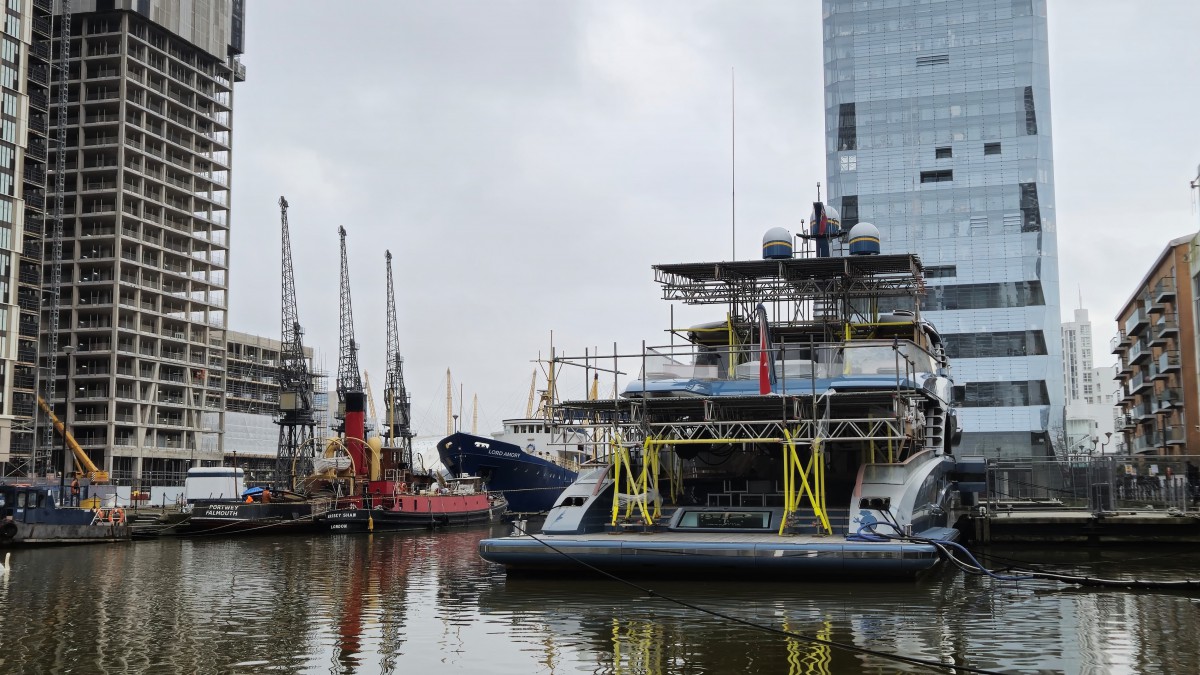 Image credit: Conor Feasey
Image credit: Conor Feasey
Profile links
58.50m 499
Cor D. Rover Design
Lawson Robb
VAN OOSSANEN NAVAL ARCHITECTS
NEW: Sign up for SuperyachtNewsweek!
Get the latest weekly news, in-depth reports, intelligence, and strategic insights, delivered directly from The Superyacht Group's editors and market analysts.
Stay at the forefront of the superyacht industry with SuperyachtNewsweek
Click here to become part of The Superyacht Group community, and join us in our mission to make this industry accessible to all, and prosperous for the long-term. We are offering access to the superyacht industry’s most comprehensive and longstanding archive of business-critical information, as well as a comprehensive, real-time superyacht fleet database, for just £10 per month, because we are One Industry with One Mission. Sign up here.
Related news
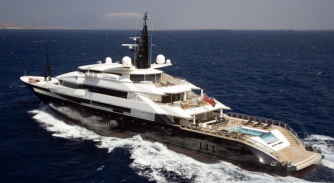
Alfa Nero crew to receive six-figure payout
Crew of the previously sanctioned yacht are set to receive hundreds of thousands of pounds in unpaid wages, with Nautilus looking to secure even more
Crew
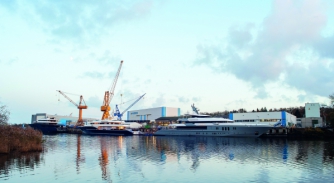
Nobiskrug and FSG file for insolvency
Two historic German shipyards have filed an application for insolvency as hundreds of workers are left in the cold
Business
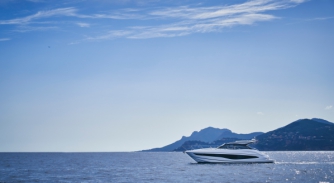
Princess Yachts to cut workforce
The British boatbuilder could make hundreds of workers redundant as it looks to steady its operations amid turbulent market conditions
Business

Oceanco settles teak court case
The shipyard’s unintentional breach of the EUTR is a clear indication of the challenges we face with an increasingly convoluted supply chain
Crew
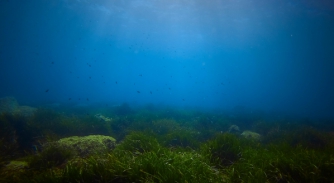
French court fines two captains for Posidonia destruction
The latest adjudication from the Marseille maritime court should serve as a clear example of what will happen if captains anchor in restricted zones
Crew
-environmental-investigation-agency-(eia).jpg)
Sunseeker sentenced for ‘blood’ teak
The British boatbuilder has been fined over £350,000 in a landmark case in the UK courts for importing teak from Myanmar
Crew
Related news
Alfa Nero crew to receive six-figure payout
1 month ago
Nobiskrug and FSG file for insolvency
2 months ago
Princess Yachts to cut workforce
3 months ago
Oceanco settles teak court case
3 months ago
Sunseeker sentenced for ‘blood’ teak
3 months ago
NEW: Sign up for
SuperyachtNewsweek!
Get the latest weekly news, in-depth reports, intelligence, and strategic insights, delivered directly from The Superyacht Group's editors and market analysts.
Stay at the forefront of the superyacht industry with SuperyachtNewsweek



